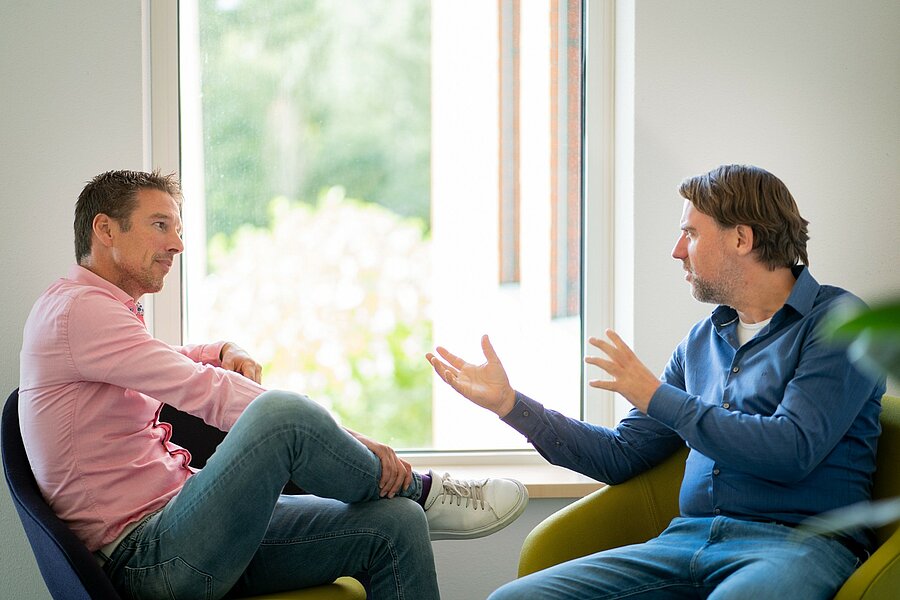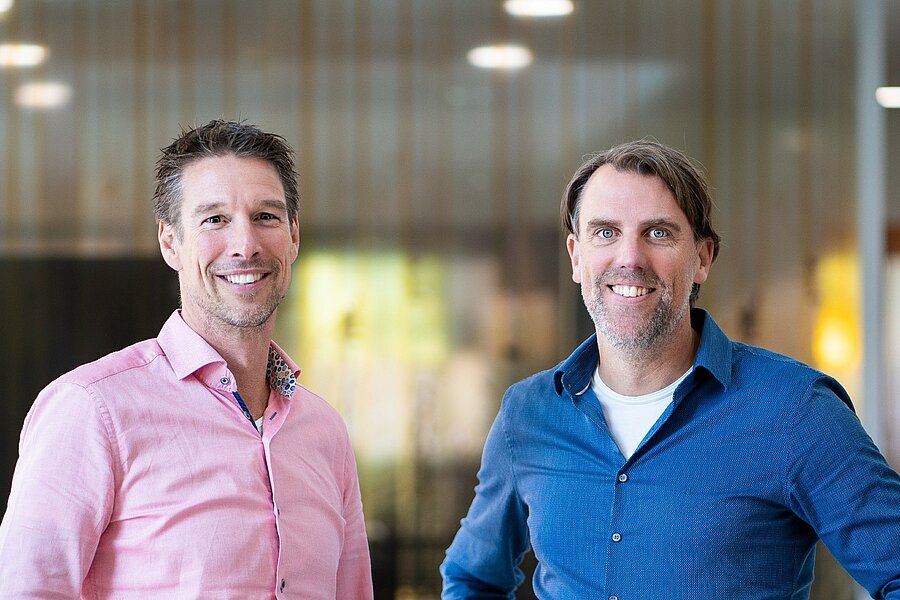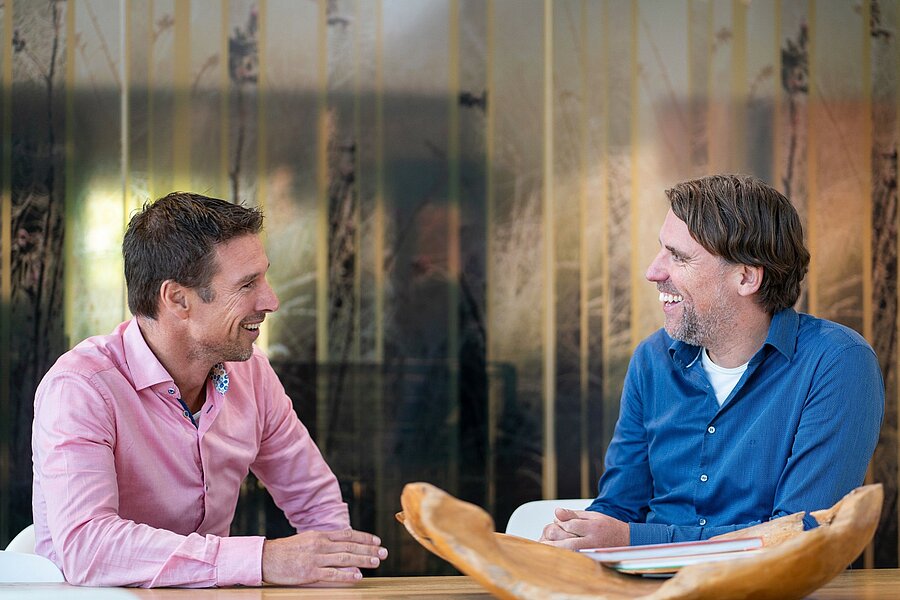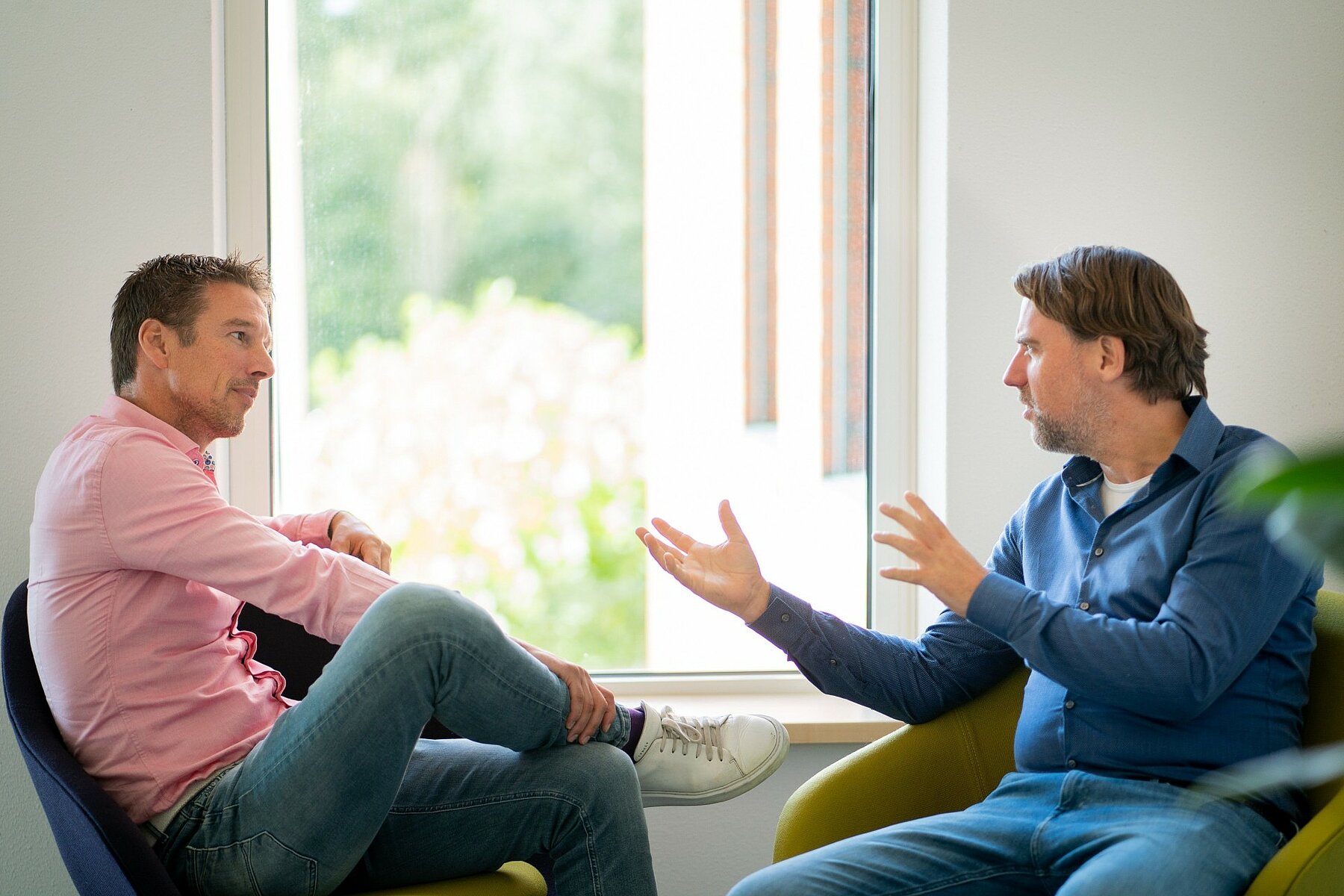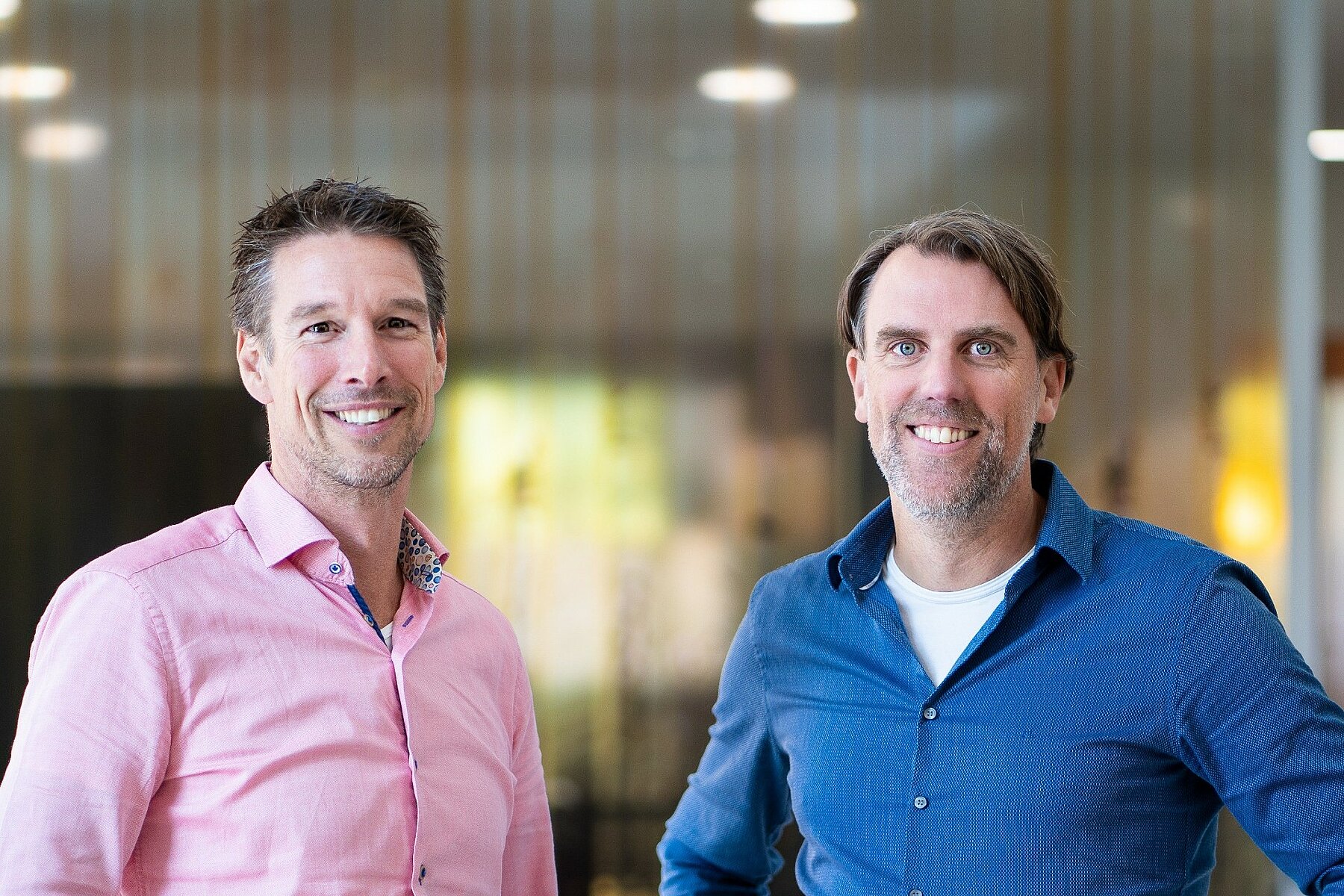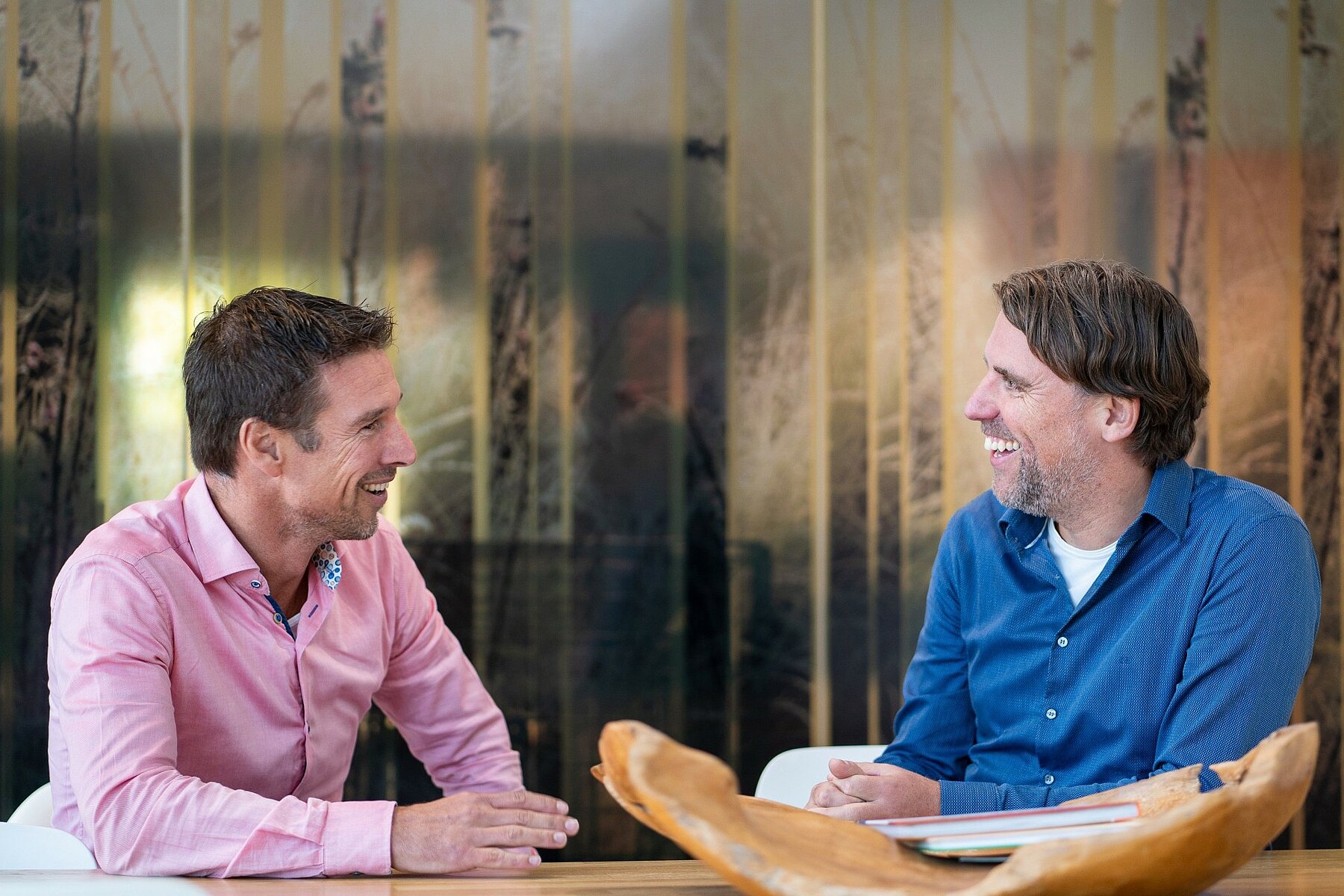"We beta-fy the alpha world"
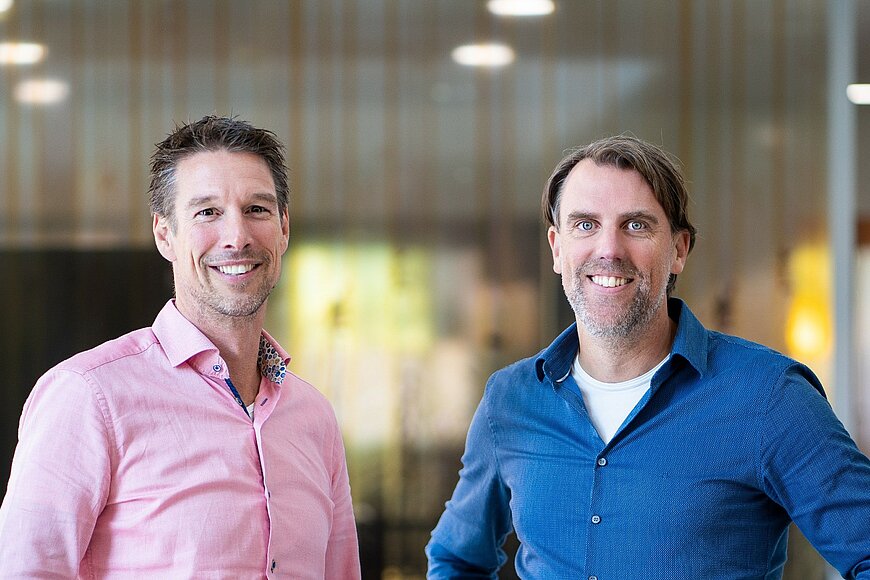
Please introduce yourself!
My name is Kos Fourkiotis. I am Manager Innovation at facilities management company CSU and its sister companies Zizo and Tzorg. In my role, I help the organisation by adding innovations that allow us to remain financially and socially successful in the long term. I identify what is happening in the outside world and think about how we can make optimal use of technological and social developments. Part of this is creating and launching strategic innovation processes. This is also how the contact with Pipple originated.
My name is Joep van den Tillaart and I am a partner at Pipple. Our goal is to use maths and creativity, to make the world a bit nicer. We do this by making smart use of data and applying data science techniques such as Artificial Intelligence (AI). The basis of AI is that computers perform tasks independently that would normally require human intelligence or interaction. An AI model can read photos and video images and interpret text. Using AI or other data science techniques, we help organisations and governments improve and speed up processes. In the process, solutions are sometimes found that our own brains could not have imagined.
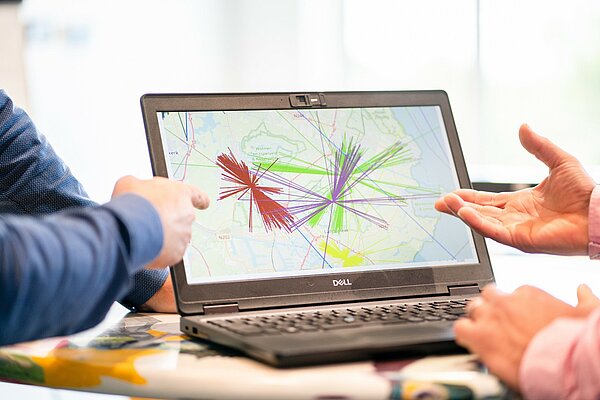
What innovation did you develop together?
Kos: "The deployment of domestic support workers and supervisors from Tzorg is paid from the Social Support Act. Tzorg therefore works with public money. It is up to us to handle these public funds carefully, and use them in the best possible way to provide optimal care. By providing domestic support, our clients can continue to live independently for as long as possible. This allows us to minimise the use of heavier care.
Tzorg employs nearly 12,000 domestic support workers and supervisors, providing assistance to some 60,000 people in the Netherlands. These eleven thousand employees travel from home to client, from client to client, and back home again. So there are a lot of travel movements there. A small saving on one travel movement adds up to a huge time saving. Travel time is necessary, but by organising travel movements more efficiently, travel time is reduced, allowing staff to spend more effective time helping. Pipple is the obvious party to come up with a solution to this issue through the use of AI."
Joep: "We started with the question 'what do you want to achieve, how are you going to apply that concretely in your processes, so that you cash in on the value you envisage now.' That analysis showed that, for example, a lot of information was only in the planners' heads to match the right assistance to the right client, think allergies, preferences or level of care. You can't automate everything that's in your head, so by capturing all the data, the computer can solve the puzzle without human interaction. We then figured out how to deploy this operationally".
Kos: "The final innovation is that we can optimise the support demand we get reimbursed by the municipalities. As a result, the time saved reaches our clients directly. The beauty of it is also that it is not a one-off exercise, but a structural process. This digital solution ensures smarter planning in the future.
Joep: "If you look at the total process, there is of course the part where we develop something smart and think together about how it will work. But a large part also consists of change management; 'how do you get the organisation and clients to go along with the new daily routine?' Everyone had a certain way of working, and a route that was taken daily. At time X, that was completely transformed. You have to communicate about that. To clients, but also internally. An AI or machine learning model only becomes a success when it is adopted operationally. That is an essential part of the work we are always keen on. Creating something beautiful that is not put to use is a waste. Applying a new technology often leads to a cultural change. Hard and soft are thus interwoven in a beautiful way. High-tech leads to high touch".
In what ways is AI helping to solve global challenges?
Joep: "By deploying smarter models and better optimisations, you spend less time in traffic. As a result, you add value when deploying employees, and save on resources and petrol costs. In fact, you can do that everywhere. Medical care is a great example. Capturing information such as which drugs work well for which type of person and who does not, allows for faster intervention and saves unnecessary costs or suffering. AI can play an important role in this in the future, with a huge global impact. With the prediction models we come up with at Pipple, we realise at least 10%, but often as much as 20% improvement. That could be in travel time, production materials, packaging or purchasing. That saves business, but it also has a positive impact on the earth.
Kos: "We beta-fiche the alpha world. So societal or psychological challenges, thanks to the computational power of computers and the right data, are increasingly being analysed and calculated. This gives insight, for example into how it is possible that some areas of the world have more food shortages than others, and it offers the possibility of making improvements in this. By using AI, we are able to make more informed decisions. It creates more transparency, insight and overview. Data teaches us to understand reality better".
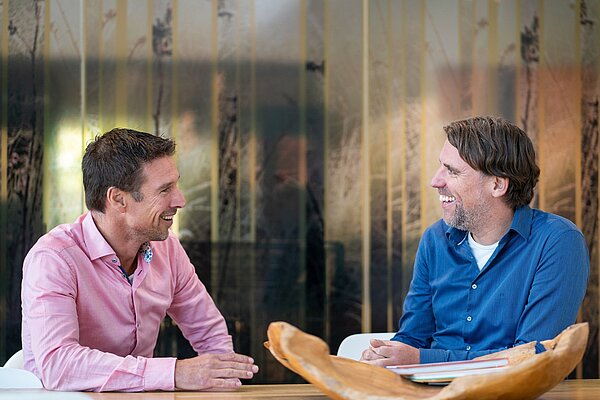
What will the resident of Brainport and the Netherlands notice from this innovation?
Joep: "AI or artificial intelligence generally delivers more connection and intelligence. In the choices you make, you are connected to the world around you. Every company has designed its processes and strategy in a certain way. Yet you can identify improvements in every organisation".
Kos: "At Tzorg, we see those improvements reflected in more spendable home care by reducing travel time. You can realise improvements in every area. As a society or as a country, you have to go along with that to avoid unnecessary use of resources. But AI also leads to greater happiness; for example, I can make a better choice of study because AI can help me to understand who I am, recognising what my passions and talents are.
My plea is to challenge organisations to try and experiment more to see where AI, smart computing or formulas can help you make people happier and prevent problems. In the case of Tzorg, this was about reduction in travel movements but it can be done in other areas as well. It's a waste not to do it".
What is your advice for other organisations and entrepreneurs to get started with AI?
Joep: "We want as many parties as possible, and certainly organisations doing something great in society, to start using AI. This can be by taking small steps; starting by listening, hearing examples and letting them sink in. Drawing, discovering, and slowly building this up to the big change. Because the moment you are convinced, then you start putting in the time, setting up functions and investing in them. Awareness is a gradual process that takes time. The more complex the change, the more time it takes".
Kos: "Many of Pipple's assignments focus on a need for change; customers have a problem and Pipple's people come up with the solution. The interesting thing about AI is that companies don't have to have problems at all. If Tzorg and Pipple had not entered into this innovation, everyone would have been happy too. But it is a shame to miss out on the opportunities of AI because that need for change is not felt. That's why my plea is; have a talk and see what's possible. Because in no need for change, there is also a lot of value".
